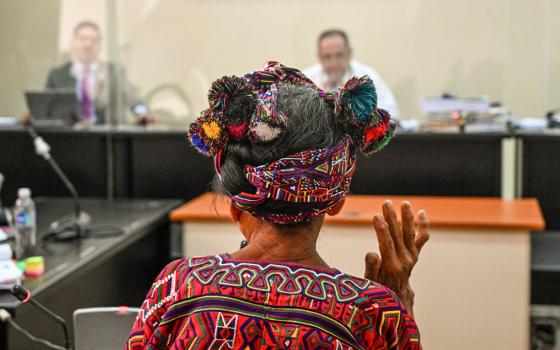Because so much in the Catholic system depends on the man in charge, popes are generally careful about what they say in public. Off-hand comments uttered within earshot of someone who's not della famiglia, inside the ecclesiastical family, can inadvertently trigger earthquakes.
Benedict XVI, however, has so far shown little fear about such impromptu moments. In a number of settings, with journalists and with rank-and-file Catholics alike, he's been willing to take questions and give answers, and these sessions are often revealing about the pope's mind. The latest example came on Thursday, when the pope met with a group of pastors from the Albano region around his summer residence at Castelgandolfo.
Two priests asked the pope for some thoughts on the subject of marriage. In response, Benedict said that given the volume of requests for annulments that reach church courts every year, it's clear how difficult it is to help engaged couples and spouses understand "the sacramentality of marriage."
"Many of them don't understand what the 'yes' before the Lord means," he said. "It means to form an alliance with him, to enter into the faith of Christ."
Benedict urged pastors to take marriage preparation seriously. He also said it's important to help divorced and remarried couples understand the sacramental character of marriage. Among other things, the comment may suggest that Benedict is not presently contemplating a change in church discipline that excludes divorced and civilly remarried Catholics from the Eucharist.
Benedict also offered a hopeful reading of history, noting that periodic crises and assaults on the church over 2,000 years have not succeeded in destroying it.
Many times, he said, the church "seemed to be finished." On each occasion, however, saints arose to revitalize the church, including figures such as St. Ignatius Loyola and St. Teresea d'Avila.
Despite Rousseau and Voltaire's conviction that institutional Christianity was finished, "the 19th century was the century of saints and of religious congregations. The faith is stronger," Benedict said, "than all the currents which come and go."
In the past century, Benedict said, Hitler "was convinced that only a Catholic could destroy Catholicism," and he believed he had "all the means for doing it." Yet he did not prevail, Benedict said, and neither did Marxism.
The church rests upon "hope that never ends," he said.
Editor's Note: NCR is moving its e-mail lists to a new user-authenticated system. To continue to receive e-mail alerts for this column, you must re-subscribe before Oct. 12. Follow this link:
Sign-up Page. The new system will help you and us control spam.
The e-mail address for John L. Allen Jr. is jallen@ncronline.org




